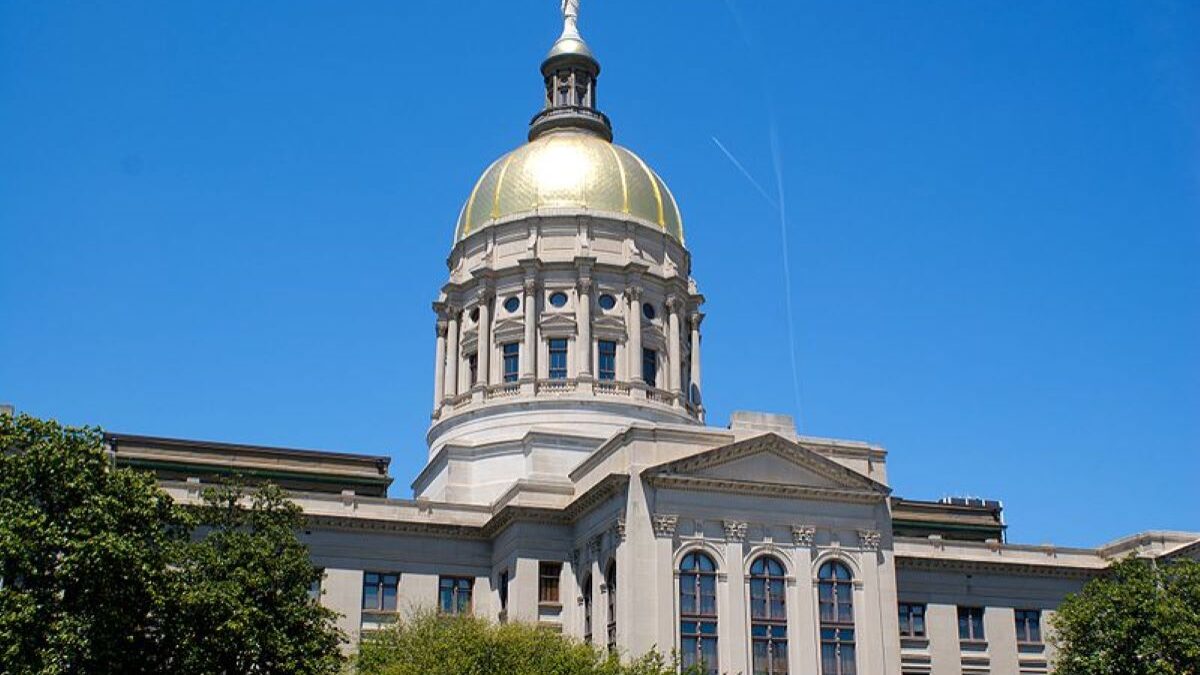
The Georgia Senate passed a bill on Thursday that seeks to prohibit local election offices from working around state law to use any kind of private funding to conduct elections.
Known as SB 222, the measure stipulates that all “costs and expenses related to conducting primaries, elections, runoffs, or other undertakings authorized or required by [state law] shall be paid from lawfully appropriated public funds.”
“[N]o county or municipal government, government employee, or election official shall solicit, take, or otherwise accept from any person a contribution, donation, service, or anything else of value for the purpose of conducting primaries or elections or in support of performing his or her duties under this chapter,” the measure reads. If signed into law, any local government or election official who accepted such funds prior to the law’s implementation would be required to return the gift “to the entity which provided such thing of value within 14 days.”
The final vote fell along party lines, with 33 Republicans supporting and 23 Democrats opposing the measure.
The bill was introduced after DeKalb County, a Democrat stronghold, recently announced it had been selected to join the U.S. Alliance for Election Excellence after the county’s commissioners accepted a $2 million grant from the Center for Tech and Civic Life (CTCL). As The Federalist reported, the Alliance is an $80 million venture launched last year by left-wing nonprofits to “systematically influence every aspect of election administration” and advance Democrat-backed voting policies in local election offices.
While Georgia Republicans passed a law (SB 202) in 2021 banning the private funding of local election offices, DeKalb officials used a loophole in the statute to justify accepting the grant from the Alliance. Instead of having their election office accept the funds, DeKalb officials had the county’s finance department apply for the grant. As Democrat and DeKalb Board of Registration and Elections Chair Dele Lowman Smith admitted, this was done “since election offices are not allowed to receive grants directly.”
“It wasn’t just the spirit of the Election Integrity Act of 2021 that was violated, it was also in the manner in which it was done — without the full election board’s knowledge; conspiring with high-level DeKalb County employees without transparency, and with what was a blatant effort to circumvent Georgia’s election laws,” Marci McCarthy, chair of the DeKalb County GOP, told The Federalist. “I commend the Georgia Senate for passing SB 222.”
[READ: How Georgia Became Democrats’ Test Site For Their 2024 Private Takeover Of Election Offices]
During the 2020 election, groups like CTCL received hundreds of millions of dollars from Meta CEO Mark Zuckerberg. These “Zuckbucks” were poured into local election offices in battleground states around the country to change how elections were administered, such as by expanding unsecure election protocols like mail-in voting and the use of ballot drop boxes. To make matters worse, the grants were heavily skewed toward Democrat-majority counties, essentially making it a massive Democrat get-out-the-vote operation.
Meanwhile, the U.S. Alliance for Election Excellence — of which CTCL is a key partner — is attempting to replicate the strategy ahead of the 2024 elections. In a recent report, the Honest Elections Project and the John Locke Foundation revealed how the Alliance seeks to skirt existing “Zuckbucks” bans or restrictions passed by 24 states by providing election offices with “scholarships” to cover membership costs. These scholarships are then “instantly converted into ‘credits’ that member offices can use to buy services from CTCL and other Alliance partners.”
SB 222 now heads to Georgia’s House of Representatives for consideration.
https://thefederalist.com/2023/03/03/georgia-senate-passes-bill-to-close-sneaky-zuckbucks-2-0-loopholes/

No comments:
Post a Comment